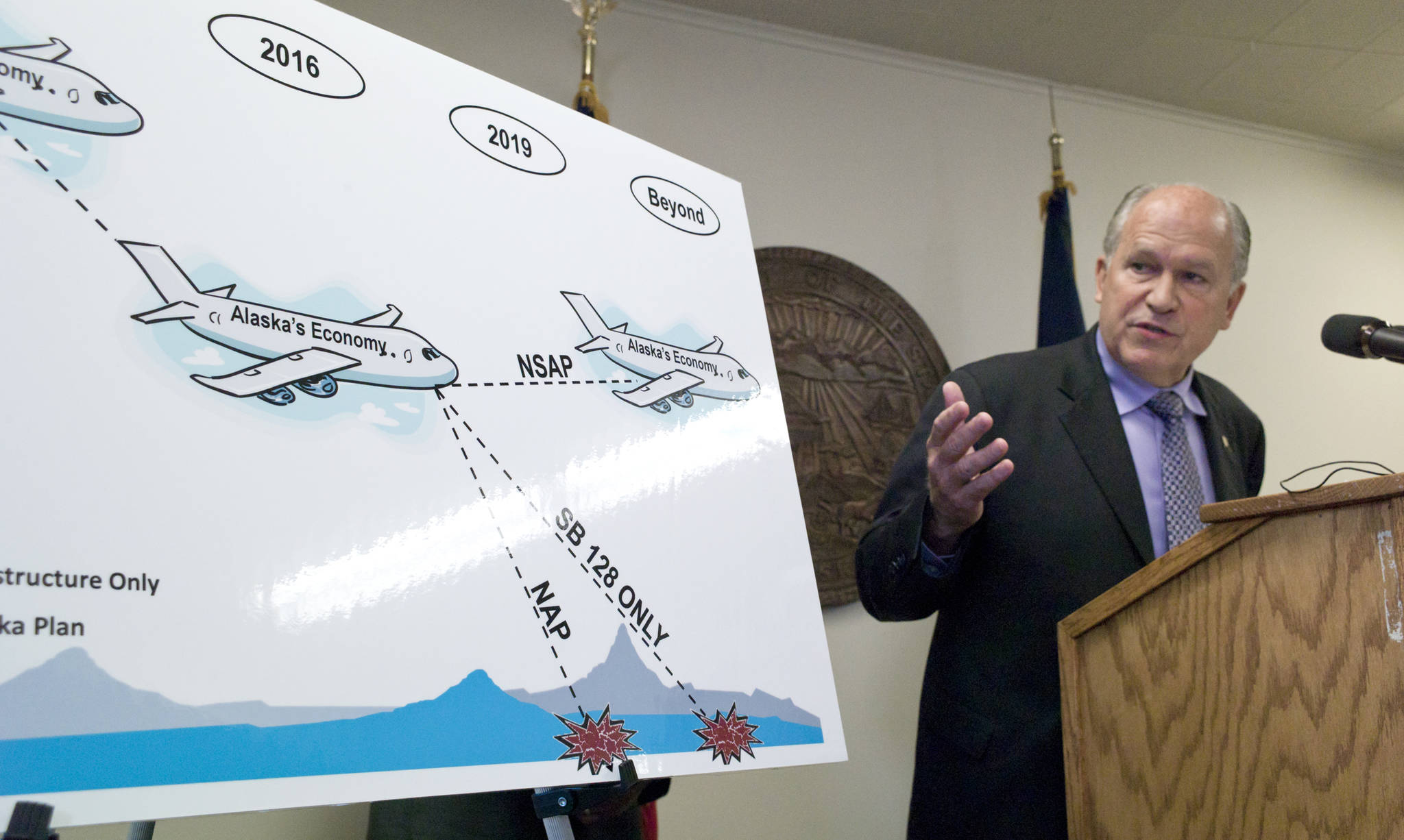Gov. Bill Walker did the right thing for Alaska when he decided to reduce the Permanent Fund Dividend in 2016. Of course, not everyone agreed then and many still don’t. But the Legislature followed his lead the next two years. Which is why it shouldn’t have been necessary for him to explain his decision last week.
It’s an election year, though. His main opponents are saying it was a mistake. And that’s partly because many believe the PFD should be guaranteed to last forever.
One of those is Republican Mike Dunleavy of Wasilla. He was part of the cut-to-the-bone Senate majority until he realized they weren’t going for the marrow. So he resigned from the Legislature to challenge Walker. He hasn’t explained where he’d cut the additional billion dollars needed to balance a budget that restores the full PFD. And his plan ignores the cost of inflation proofing the fund.
On the Democratic side, former U.S. Senator Mark Begich wants to use 40 percent of the fund for education. That’s just a variation of what Walker originally proposed. It’ll still reduce the size of the annual payout.
In any case, to find the important message in Walker’s opinion piece you have to skip past the “how we got here” story and his three “I did it because” statements. Near the end are two themes — political correctness and Alaska first. Both may sound like the populist rhetoric of President Trump. But Walker’s ideas are closer to the inaugural message delivered by our 35th president.
“Ask not what your country can do for you,” John F. Kennedy said at the end of that remarkable speech, “ask what you can do for your country.”
Now I’m not suggesting Walker is a league with JFK. But the sentiment is similar. Instead of thinking the state exists just serve and protect us, he’s asking us to sacrifice some of share of the state’s oil wealth, which it so happens, we did nothing to earn.
This is diametrically opposed to Trump’s America first vision. He hasn’t asked anyone to give anything up to make the country great again. He seems to think that, by virtue of our economic and military might, all he needs to do is demand the world put our interests first. And his “I alone can fix it” tells us to sit back and watch him lead the nation to a more perfect future.
Even if he could pull off such a fantasy, the problem is it stops asking “we the people” to play a role in preserving our democracy and freedom.
Except at election time. Then, like every politician, he’ll be out making new promises in exchange for our vote.
In the 2014 race for governor, Walker got some votes because, just weeks before the election, he said he had no intention of implementing “a statewide tax or paying for state government by reducing Permanent Fund dividend checks.” And, as if our side of the democracy bargain revolves around the ballot box and opinion polls, his disapproval rating rose dramatically after changing positions on both promises.
The PFD has been called the third rail of Alaskan politics. Messing with it is an invitation to electoral defeat. That makes Walker’s decision to reduce the PFD was much more politically courageous than Trump’s verbal violations of political correctness.
That kind of PC says as much about the voting public as it does the politicians who fear their rejection. It’s our way of directing them to govern to the needs of individual interests without regard for the state as whole. That’s why it was politically correct for the Legislature to recklessly spend the tax windfall during the years of high oil prices. And why, during the budget crisis of the past three years, they could cut spending and withdraw from the state’s reserves without raising new revenue.
And why, in 1980, Gov. Jay Hammond signed the bill abolishing the personal income tax. It wouldn’t be needed because, as Hammond wrote years later, the permanent fund would become “wells pumping money for infinity.”
In the real world nothing lasts forever. Especially the good times. And election year promises won’t bring them back. That’s why choosing our next governor is less about the candidates than what we’re willing to sacrifice for the sake of Alaska’s future.
• Rich Moniak is a Juneau resident and retired civil engineer with more than 25 years of experience working in the public sector. He contributes a weekly “My Turn” to the Juneau Empire. My Turns and Letters to the Editor represent the view of the author, not the view of the Juneau Empire.

